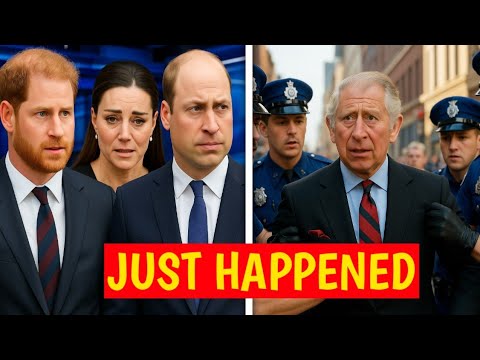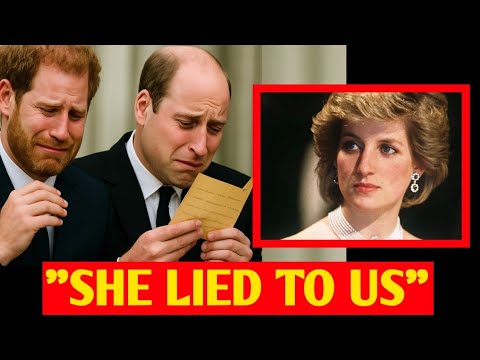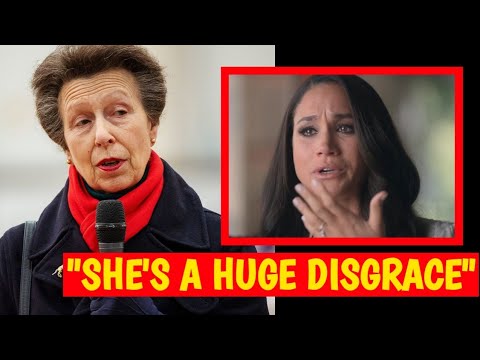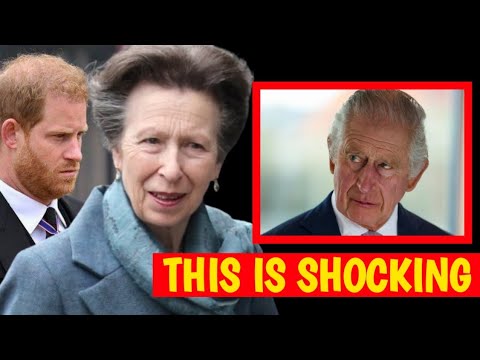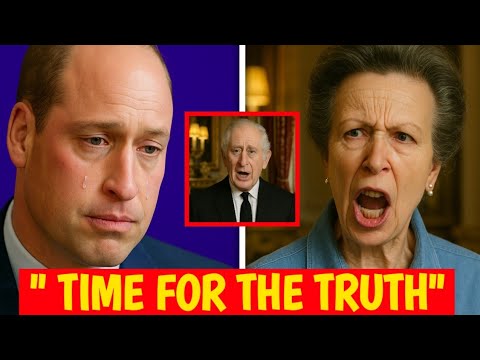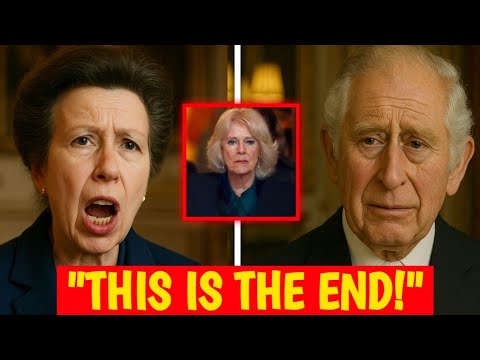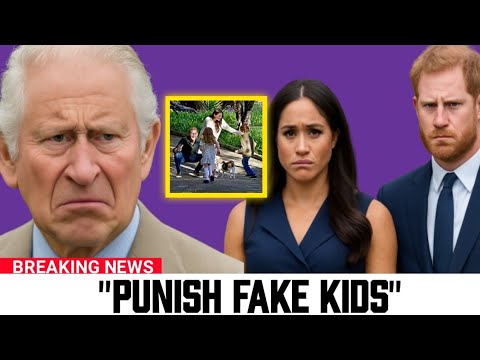
What kind of grandfather would remove his own grandchildren from the royal will unless he held grave suspicions that they might not truly be of his bloodline? A revelation that was never meant to become public has shaken Buckingham Palace to its foundations. According to leaked reports, King Charles III made a stunning and controversial last-minute amendment to his will, effectively disinheriting Prince Harry’s two children, Archie and Lilibet. Sources suggest that the driving force behind this drastic decision stems from long-standing, privately held doubts about the children’s paternity—concerns supposedly buried deep within palace walls and never meant for outside ears.
The timing of this change raises urgent questions. Why now? What catalyzed such a pivotal move so close to the end of a monarch’s reign? And how did Meghan Markle respond when she discovered she had been excluded from the discussion, blindsided by a decision with such far-reaching implications? This situation goes far beyond matters of wealth. It pierces to the heart of legacy, the sanctity of bloodlines, and the erosion of trust within a royal institution already burdened by years of public scrutiny and private turmoil.
It all began quietly, not with fanfare or press releases, but with murmurs—subtle hints that slithered through the gilded corridors of Buckingham Palace, echoing beneath the towering portraits of long-dead sovereigns. This was not about war, money, or abdication. It was something more intimate and potentially more destructive. It was about doubt—specifically, doubt about the royal lineage. Within a monarchy defined by ancestry, this kind of uncertainty is more than an internal family issue; it is a threat to the entire institution’s legitimacy. Whispers turned into rumors, and those rumors carried the names of two children: Archie and Lilibet.
Born into a global spotlight, these children were celebrated by millions as symbolic heirs to a new era of royal evolution. They represented a blending of tradition and modernity, of royal decorum and independent spirit. But away from public adoration, behind official portraits and carefully staged family appearances, a more painful drama was unfolding. One marked not by open confrontation but by secrecy—conversations held in hushed tones, behind locked doors, under the watchful gaze of royal advisers and security personnel.
What emerged from this invisible conflict was a single, devastating act. Sources now claim that King Charles III, a monarch traditionally measured in both word and action, authorized a critical amendment to his final will. That amendment removed Archie Harrison Mountbatten-Windsor and Lilibet Diana Mountbatten-Windsor from any claim to royal inheritance. Their names were effectively erased from the financial future of the House of Windsor. Although they may still retain their titles—for now—the practical implications are immense: no access to royal estates, no stake in royal trust funds, and no part of the immense wealth that generations of royals have passed down.
No official palace statement has been issued, but insiders suggest that the decision stems from a secret paternity investigation. This was not an act of personal vengeance, they argue, but one of constitutional necessity—a preemptive move to safeguard the integrity of the crown. Such a step could only be made if doubts were deemed significant enough to threaten the royal lineage itself. If true, this would mark one of the most serious constitutional reckonings in modern royal history. And at the center of the storm stands Meghan Markle.
Once heralded as a breath of fresh air in an archaic institution, Meghan was meant to help modernize the monarchy and appeal to younger generations. Now, some insiders reportedly view her as a lightning rod for controversy and division. Her very presence has become entangled with the monarchy’s deepest insecurities about race, class, tradition, and identity. And if recent reports are accurate, Meghan has been entirely shut out of any legal challenge to the will’s changes, her voice silenced in a matter that affects her children directly.
Behind palace doors, an emotional debate appears to have raged in the final hours before the will was modified. Some sources claim King Charles was anguished by the choice. Others suggest he was pressured—perhaps by Queen Camilla, Princess Anne, or senior courtiers who feared the long-term implications of uncertainty around succession. Was this decision truly his alone, or the result of a coordinated push from within the inner circle?
Meanwhile, Meghan faces a precarious future. Financially, the stakes are staggering. The removal of Archie and Lilibet from the royal inheritance severs their access to billions in assets, trust funds, and potential future revenues tied to the monarchy. Socially, Meghan and Harry now stand more isolated than ever before—not only from the royal institution but from the elite circles in the UK and America that once welcomed them. Privately, she is said to be furious and devastated, feeling betrayed and powerless to protect her children from decisions made without her input.
This unfolding saga is not mere gossip. It has been corroborated by confidential sources, legal experts familiar with royal law, and political analysts tracking the slow unraveling of royal unity. Over the coming analysis, we will examine each layer of this story. We will dissect the language of the altered will and delve into the secretive DNA inquiry that reportedly changed the course of royal history. We will explore how the events of the last 48 hours before the will’s change were marked by urgency, conflict, and silence.
This case echoes previous moments of royal crisis. From King Edward VIII’s abdication over love to the fallout from Princess Diana’s explosive BBC interview, the House of Windsor has long wrestled with issues of identity, love, and legitimacy. But never before has the question been so stark: can a monarchy survive if its bloodline is questioned? What does it mean for the crown if a child celebrated as royal turns out not to be? And in a modern world increasingly skeptical of royal privilege, how can the monarchy defend its traditions without appearing cruel or outdated?
By the end of this story, one truth becomes inescapable: the decision to exclude Archie and Lilibet from royal inheritance has set off a chain reaction that could redefine the monarchy for generations to come. Whether the king acted out of fear, strategy, or sincere conviction, the consequences will be lasting. Trust has been fractured. Loyalties have been tested. And the line between duty and personal belief has never been more blurred. For Meghan, for Harry, and for their children, the cost of royal legacy may have just become immeasurable.
